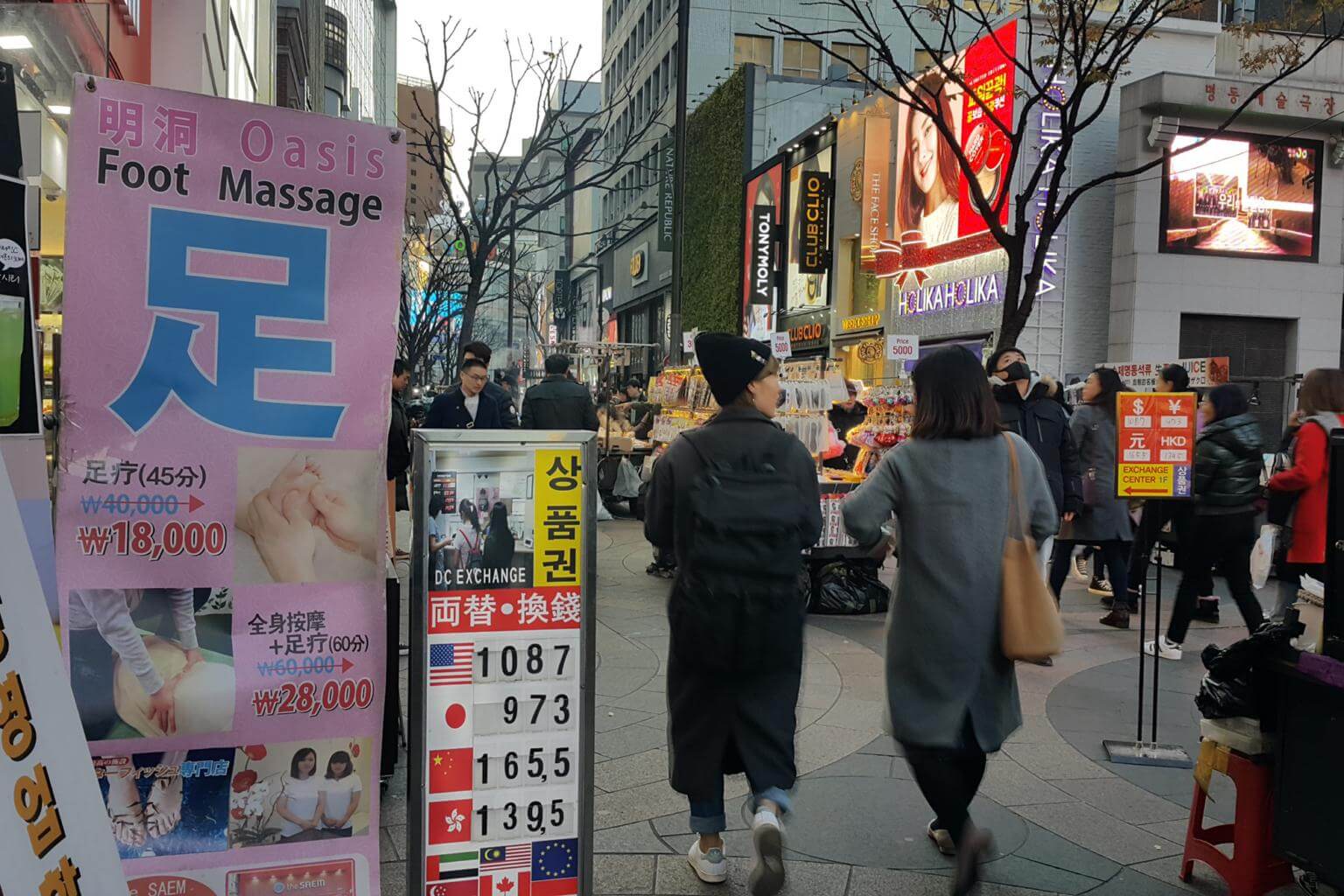Thai-Korean vice-ring bust shines spotlight on growing, but largely illegal, South Korean massage industry
Sign up now: Get insights on Asia's fast-moving developments

A massage advertisement spotted in the heart of Myeongdong, Seoul.
ST PHOTO: CHANG MAY CHOON
SEOUL - Following the dramatic rescue of five Thai masseuses held captive as sex slaves in the South Korean city of Busan and the arrest of several members of a Thai-Korean vice ring targeting them, Thai authorities last week warned the country's women against falling prey to forced prostitution in South Korea.
The warning has cast a spotlight on South Korea's proliferating massage industry and the little-known fact that most of these establishments - whether in shady back alleys or plush hotels - are not licensed.
South Korea's medical law states that only blind people and nationally certified professionals are allowed to provide massage services.
The Health Ministry said recently that there are only 1,300 legal massage parlours hiring 9,742 licensed blind masseuses in the country.
But they make up only a small percentage of the total population of masseuses, as illegal massage parlours, many hiring from China and Thailand, dominate the market.
Only 14 out of the 280 shops found in the popular Myeongdong shopping district are legitimate, according to a Hankook Ilbo newspaper report. Checks with two other areas popular for massage revealed a similar ratio of around 5 per cent being legal, said the report.
Illegal operators can be fined up to 10 million won (S$12,400) or jailed for up to three years.
While the police have vowed to crack down on illegal massage parlours, observers said the law is hard to enforce and that the authorities tend to focus on shutting down those providing sex services. Prostitution is illegal in South Korea.
There are no official figures for the number of unlicensed massage therapists. But some 120,000 of them were represented by a massage association that tried but failed to change the law back in 2008.
South Korea's visually impaired population of more than 250,000 were first given the exclusive right to become masseuses under Japanese rule in 1913. The right was abolished in 1946 but reinstated in 1963.
Unlicensed sighted masseuses have tried to challenge the rule several times but drew fierce protests from the blind, with some going to extreme measures such as jumping off buildings or into the Han River.
At least two of them died in 2006 protesting a court decision favouring the sighted, and the National Assembly eventually caved to pressure to pass a law protecting blind people.
The law has not stopped the number of unlicensed massage parlours from growing - to the point of recruiting foreigners to bring labour costs down.
The Foot Shop, for one, is a popular chain known for its skilled therapists hired from China. It has 147 outlets listed on its website.
One of its masseuses - a woman who moved from Harbin, China, to Seoul five years ago - told The Straits Times that they are known for "massage only", and male customers never ask for additional services.
"I've heard that only the blind are legally allowed to give massages in (South) Korea, but honestly, there's not enough of them to cater to market demand," she said.
In May, the plight of Thai women forced into prostitution in Busan came to light.
Five of them arrived in March to work as masseuses but ended up providing sex services to at least 53 men. They were rescued by the police only after one of them managed to slip an SOS note to a supermarket cashier while pretending to buy a can of soda.
The South Korean police, working with their Thai counterparts, have since managed to arrest 15 Koreans and four Thais involved in the vice ring, which lured Thai woman on social media with promises of free accommodation and a good income working in decent massage parlours.
A week ago, Thailand's Department of Special Investigation warned Thais against being recruited as masseuses in South Korea. The unit also said there are crime rings trying to get Thai women to work illegally in Malaysia, Singapore and the Middle East, reported The Sunday Nation.
Seoul National University law professor Lee Jae Min said masseuses hoping to land a job in South Korea should get proper work visas instead of coming here on social visit passes. "If not, employers may threaten reporting their illegal immigration status to the police."


